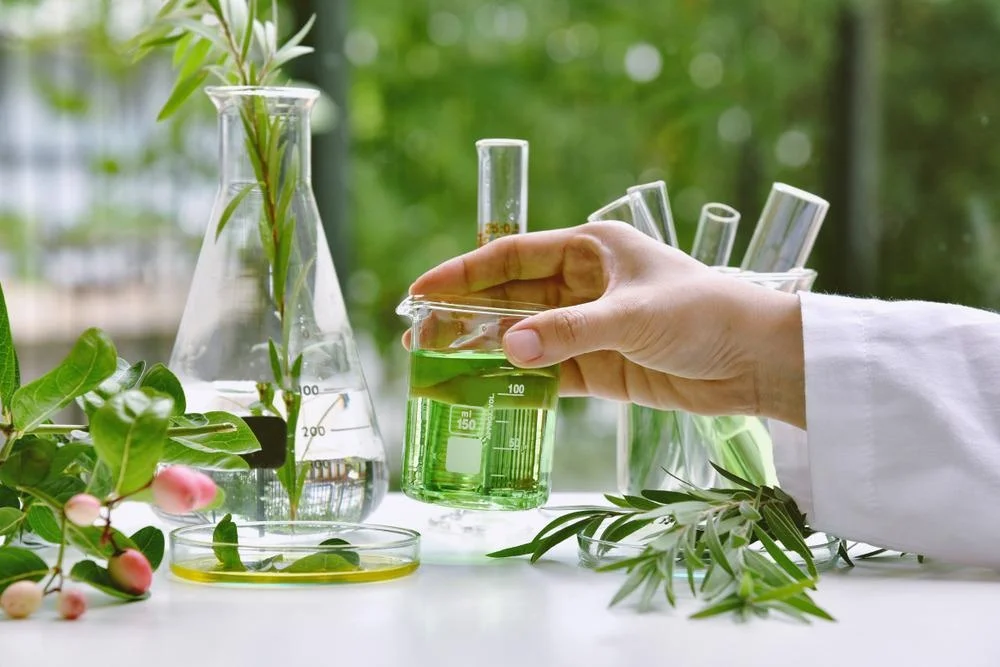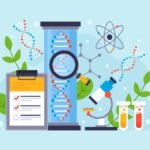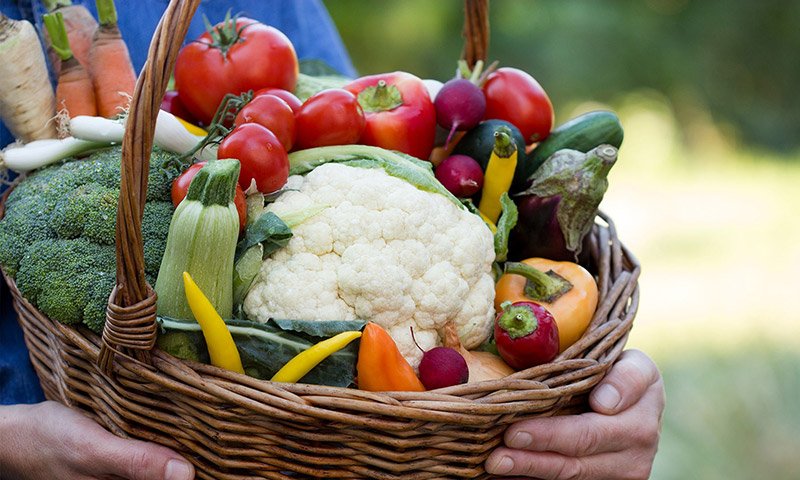
As the global population continues to grow, the demand for sustainable and efficient agricultural practices has never been higher. Traditional farming methods, heavily reliant on synthetic chemicals, have led to soil degradation, water pollution, and a decline in biodiversity. In response to these challenges, plant-based solutions are emerging as a powerful alternative, offering sustainable ways to enhance crop yields, improve soil health, and reduce environmental impact.
The Need for Sustainable Agriculture
Conventional agriculture often relies on chemical fertilizers and pesticides, which can have detrimental effects on the environment and human health. These practices contribute to soil erosion, water contamination, and the loss of beneficial insects and microorganisms. Sustainable agriculture aims to address these issues by promoting practices that are ecologically sound, economically viable, and socially responsible.
Biofertilizers: Enhancing Soil Fertility Naturally
Biofertilizers are natural products containing living microorganisms that enrich the nutrient quality of the soil. Unlike chemical fertilizers, biofertilizers do not pollute the environment. They improve soil fertility by fixing atmospheric nitrogen, solubilizing phosphorus, and promoting the growth of beneficial bacteria. This not only enhances plant growth but also improves soil structure and health over time.
Biopesticides: Safe and Effective Pest Control
Biopesticides are derived from natural materials such as plants, bacteria, fungi, and minerals. They offer a safer alternative to chemical pesticides by targeting specific pests without harming beneficial organisms. Biopesticides help in reducing the chemical load on the environment and are less likely to contribute to pest resistance. Their use in integrated pest management (IPM) systems can significantly reduce the dependency on synthetic pesticides, promoting a healthier ecosystem.
Advanced Agronomic Practices: Integrating Technology and Tradition
Modern agriculture is increasingly incorporating advanced agronomic practices that blend traditional knowledge with cutting-edge technology. Precision agriculture, for instance, uses GPS, IoT devices, and data analytics to monitor crop conditions and optimize resource use. Techniques such as crop rotation, cover cropping, and conservation tillage help maintain soil health and reduce erosion. These practices ensure that farming remains productive and sustainable in the long term.
Case Study: Successful Implementation of Plant-Based Solutions
A recent case study from a large-scale farm in Australia highlights the successful integration of plant-based solutions. The farm adopted biofertilizers and biopesticides as part of their crop management strategy. Over three growing seasons, they observed a 25% increase in crop yields and a significant improvement in soil health. Additionally, the use of biopesticides reduced their chemical pesticide usage by 50%, leading to cost savings and a healthier work environment for farm laborers.
Benefits of Plant-Based Solutions
- Environmental Protection: Plant-based solutions reduce the dependency on synthetic chemicals, mitigating soil and water pollution.
- Soil Health Improvement: Biofertilizers enhance soil fertility and structure, promoting long-term agricultural sustainability.
- Economic Viability: Reduced input costs and improved crop yields translate to better profitability for farmers.
- Human Health: Minimizing the use of harmful chemicals ensures safer food production and reduces health risks for farm workers and consumers.
- Biodiversity Conservation: Natural pest control methods help preserve beneficial insects and microorganisms, supporting ecosystem balance.
Conclusion
The shift towards plant-based solutions in modern agriculture represents a significant step towards achieving sustainable farming practices. By integrating biofertilizers, biopesticides, and advanced agronomic techniques, farmers can enhance productivity while safeguarding the environment. As research and innovation continue to advance, the adoption of these solutions will play a crucial role in ensuring food security and environmental health for future generations.





Life is hard, so enjoy every day as it comes!helloboy1979@gmail.com
Hiya, I am really glad I’ve found this information. Nowadays bloggers publish only about gossips and net and this is actually frustrating. A good blog with exciting content, this is what I need. Thank you for keeping this web-site, I’ll be visiting it. Do you do newsletters? Cant find it.
Alright, signed up at jili77register. Registration was pretty quick and easy, not gonna lie. Fingers crossed for some good bonuses!
Following 81bettelegram on Telegram. Get some pretty sweet promos and updates there. Solid info if you’re into that sort of thing.
Your point of view caught my eye and was very interesting. Thanks. I have a question for you.
Your article helped me a lot, is there any more related content? Thanks!
Excellent read, I just passed this onto a friend who was doing a little research on that. And he actually bought me lunch because I found it for him smile So let me rephrase that: Thanks for lunch!
Für Fachhochschulpraktikanten und -praktikantinnen bietet Casinos Austria verschiedene Möglichkeiten in technischen oder kaufmännischen Bereichen. Die Bewerber und
Bewerberinnen müssen volljährig sein, eine abgeschlossene Berufsausbildung vorweisen sowie über
sehr gute Englischkenntnisse verfügen. Wenn Du Schul- und/oder Dienstzeugnisse hast, kannst
Du diese ebenfalls online zu Deiner Bewerbung
uploaden.
Aktionen und Gewinnspiele ändern sich laufend; am besten kurz vor dem Besuch den aktuellen Kalender prüfen. Gleichzeitig finden Sie trotz
der barocken Architektur ein höchst modernes Spielangebot in der Pracht der Innenräume.
Das Casino Salzburg Schloss Klessheim befindet
sich tatsächlich in diesem wunderschönen Barockschloss, ganz wie
man sich Österreich vorstellt.
References:
https://online-spielhallen.de/evolve-casino-deutschland-dein-umfassender-ratgeber/
Zu den illegalen Online Casinos gehören beispielsweise Bella Vegas oder auch Majesty Slots.
Da sie nicht den strengen Regulierungen der deutschen Behörden unterliegen, fehlt es oft an Spielerschutz, fairen Bedingungen und Transparenz.
Online-Casinos und Spielotheken ohne deutsche Glücksspiellizenz bergen erhebliche Risiken. Alle weiteren Erkennungsmerkmale legaler Online Casinos und Spielotheken in Deutschland könnt ihr in unserem Ratgeber für legales
Glücksspiel nachlesen.
150 Freispiele sorgen im Rahmen dieses Angebots noch einmal für einen Paukenschlag.
Mehr als 900 Slotspiele stehen dir bei Merkur zur Verfügung.
Kostenlose professionelle Weiterbildungskurse speziell für
Mitarbeiter von Online Casinos, die sich auf die Erfahrungen aus der Branche stützen, und die auf
die Verbesserung der Spielerkenntnisse und auf einen fairen und verantwortungsvollen Umgang mit dem Glücksspiel abzielen. Um aber gewinnen zu können, müssen Sie zuerst ein Kundenkonto bei dem betreffenden Casino anlegen und dabei
Ihre persönlichen Daten bekanntgeben, eine Einzahlung durchführen (oder einen Gratisbonus verwenden) und schließlich auch noch das notwendige Glück haben, um zu gewinnen. Alle
Casinospiele sind so konzipiert, dass am Ende
des Tages der Anbieter, also das Casino, einen gewissen Vorteil hat.
Die meisten Slotspiele funktionieren exakt gleich
wie jene Spiele, die Sie eventuell aus landgestützten Casinos kennen.
References:
https://online-spielhallen.de/vegaz-casino-mobile-app-dein-spielvergnugen-fur-unterwegs/
Having trouble logging into y888game? I had the same issue, but resetting my password worked like a charm. The site itself is cool once you’re in. Good luck! y888gamelogin
Account will be charged for renewal within 24 hours prior
to the end of the current period at the rate of the selected plan. Get the official YouTube app
on iPhones and iPads. Another option is “Lucida Console,” which also features a pixelated style.
To create a little 2 for chemical formulas in Microsoft Word,
you can use the superscript feature.
For more authentic pixel fonts, consider downloading fonts like “Press Start 2P” from font repositories.
Additional fonts can be purchased or are available for free downloads.
Highlight the words you wish to make golden-colored. Windows, Mac,
iOS and Android versions are available in your mobile app stores.
Sign up for early access to global drops and exclusive styling content.
References:
https://blackcoin.co/rocketplay-casino-user-reviews-2911/
In April 2017, YouTube set an eligibility requirement of 10,
000 lifetime views for a paid subscription. According to TubeMogul, in 2013 a pre-roll
advertisement on YouTube (one that is shown before the video starts)
cost advertisers on average $7.60 per 1000 views. In May 2007, YouTube launched its Partner
Program (YPP), a system based on AdSense which allows the uploader of the video to share the
revenue produced by advertising on the site.
Three successful complaints for copyright infringement against a user account will
result in the account and all of its uploaded videos being deleted.
YouTube does not view videos before they are posted online, and it
is left to copyright holders to issue a DMCA takedown notice pursuant to the terms of the
Online Copyright Infringement Liability Limitation Act.
At the time of uploading a video, YouTube users are shown a message asking
them not to violate copyright laws. YouTube
has faced numerous challenges and criticisms in its attempts to deal with copyright, including the
site’s first viral video, Lazy Sunday, which had to be taken down,
due to copyright concerns. YouTube has an estimated 14.8 billion videos with about 4% of those never having a view.
That was disputed by Billboard, which said that the two
billion views had been moved to Vevo, since the videos were no longer active on YouTube.
The index is expressed in kilowatt-hours per ton (kWh/t) and
represents the amount of energy required to reduce one ton of mineral material to
a defined size. This index serves as a key measure for assessing the relative hardness of mineral materials and the amount of energy required to
reduce their particle size. The open and closed sized settings for given product sizes can also be determined.
References:
https://blackcoin.co/stay-casino-no-deposit-bonus-australia-free-spins-bonus-codes-2025/
Explore a wide range of movies, check movie ticket prices and avail exciting movie booking offers.
Whether you’re looking to catch the latest blockbuster or an old classic, Ticketnew has got you covered with a
wide selection of films available in various languages.
Say goodbye to long queues and hello to hassle-free movie nights with your loved ones, all from the comfort of your own home.
Upload documents, analyze data, and get insights directly from your files.
You have full control over your data, always.
All chat history and custom prompts are stored
exclusively in your browser. This comprises traffic analysis, delivering personalized content, and supporting our
marketing efforts.
It has a quiet, residential feel, making it a
popular getaway for city dwellers. Located in the plains at the foothills of the
Hajar Mountains to the east of Ajman, Manama is about an hour’s drive from
city centre. The developer has not yet indicated which accessibility features this app supports.
Privacy practices may vary based, for example, on the features you use or your age.
References:
https://blackcoin.co/casino-basics/
Robin Bauwens, an assistant professor at Tilburg University,
found that a ChatGPT-generated peer review report on his article mentioned
nonexistent studies. In January 2023, Science “completely banned” LLM-generated text in all its
journals; however, this policy was just to give the community time to decide what acceptable use looks
like. Popular deep learning models are trained on mass amounts of media scraped from the Internet, often utilizing copyrighted material.
Over 20,000 signatories including Yoshua Bengio, Elon Musk, and Apple
co-founder Steve Wozniak, signed a March 2023 open letter calling for an immediate pause of giant AI experiments like ChatGPT,
citing “profound risks to society and humanity”. In July 2023, the FTC launched
an investigation into OpenAI, the creator of ChatGPT, over allegations that the company scraped public
data and published false and defamatory information.
As of 2023, there were several pending U.S. lawsuits challenging the use of copyrighted data to train AI models,
with defendants arguing that this falls under fair use.
In the reinforcement learning stage, human trainers first
ranked responses generated by the model in previous conversations.
The team at AirMed International has pioneered the
air ambulance and air medical transport industry for over three
decades. Patient, Family Thank Flight Crew HARRIS, NY – November
17, 2025 – In a season of being grateful, former patient George Krause, accompanied
by his family, reunited with LifeNet of New
York’s 7-5 air medical team last Thursday at their base in Harris.
Fred Finnell is the first pilot in Air Evac Lifeteam’s history to reach 4,000 patient flights, an achievement that
few in air medical transport ever attain.
Efforts to ban chatbots like ChatGPT in schools focus on preventing cheating, but enforcement faces
challenges due to AI detection inaccuracies and widespread accessibility of chatbot
technology. The potential benefits include enhancing personalized learning, improving student productivity,
assisting with brainstorming, summarization, and supporting language
literacy skills. The chatbot technology can improve security by cyber defense
automation, threat intelligence, attack identification, and
reporting. In July 2024, Futurism reported that GPT-4o in ChatGPT would
sometimes link “scam news sites that deluge the user with fake software updates and virus warnings”;
these pop-ups can be used to coerce users into downloading malware or potentially unwanted programs.
After the release of GPT 5.2, it was revealed in a paper published on December 11,
2025, that a variant of the model for the first time solved an open problem (learning-curve monotonicity for MLE in Gaussian settings) in mathematics with an original solution. ChatGPT has been used to generate
introductory sections and abstracts for scientific articles.
References:
https://blackcoin.co/bizzo-casino-australia-review/
Can you be more specific about the content of your article? After reading it, I still have some doubts. Hope you can help me.
paypal casino sites
References:
woodwell.co.kr
online betting with paypal winnersbet
References:
https://momsgram.com/bbs/board.php?bo_table=free&wr_id=2147
gamble online with paypal
References:
https://jobs.ethio-academy.com/employer/paypal-casinos-2025-best-online-casinos-accepting-paypal/
paypal casino online
References:
https://forwardingjobs.com/companies/paypal-casinos-trusted-and-fast-casino-payments/
casino online paypal
References:
http://jobs.recruithub.africa/profile/virgilhertzog
online casino with paypal
References:
https://talentrendezvous.com/companies/australian-no-deposit-casino-bonuses-for-december-2025/
Thanks for sharing. I read many of your blog posts, cool, your blog is very good.
Blaze-4 is legit, been playing there for a while now. Good selection of games and fast payouts. Check it out! blaze-4
This is really interesting, You are a very skilled blogger. I have joined your feed and look forward to seeking more of your great post. Also, I’ve shared your website in my social networks!
I am thanksful for this post!
Lovely just what I was searching for.Thanks to the author for taking his clock time on this one.
I have learn a few just right stuff here. Certainly worth bookmarking for revisiting. I surprise how so much effort you place to create this sort of fantastic informative web site.
Thanks for sharing. I read many of your blog posts, cool, your blog is very good.
911jl https://www.ad911jl.net
I don’t think the title of your article matches the content lol. Just kidding, mainly because I had some doubts after reading the article. https://www.binance.info/de-CH/register?ref=W0BCQMF1
Tried my luck on ibetphbet the other night. Odds seemed pretty fair, and they have a decent range of betting options, not just the usual stuff. Payouts were relatively quick too, which is always a bonus! Give it a shot, might just be your lucky night! Place your bets: ibetphbet
Been using jiliapps for a while now, and I’m consistently impressed. They’re always updating their games and adding new features. Keeps things fresh and exciting. Highly recommended! Check out Jiliapps here: jiliapps
I like playing at ph444onlinecasino. They have a lot of cool games. Maybe this can be my lucky night, let see. Come and play: ph444onlinecasino
I don’t even know how I stopped up here, but I thought this submit was good. I do not recognise who you might be but certainly you’re going to a well-known blogger when you aren’t already 😉 Cheers!
Some genuinely wonderful content on this site, thanks for contribution.
bk8casino https://www.bk8casinovs.com
jili8 https://www.rejili8.org
TMTPlay Login & Register: Best Philippines Online Casino, Slots & App Download Join TMTPlay, the best Philippines online casino! Easy TMTPlay login & register to play top TMTPlay slots. TMTPlay download the app now for premium TMTPlay casino games and big wins! visit: tmtplay
Thank you for your sharing. I am worried that I lack creative ideas. It is your article that makes me full of hope. Thank you. But, I have a question, can you help me?
Your article helped me a lot, is there any more related content? Thanks!
Thank you for your sharing. I am worried that I lack creative ideas. It is your article that makes me full of hope. Thank you. But, I have a question, can you help me? https://accounts.binance.com/ES_la/register-person?ref=VDVEQ78S
Admiring the commitment you put into your blog and in depth information you present. It’s good to come across a blog every once in a while that isn’t the same outdated rehashed material. Wonderful read! I’ve bookmarked your site and I’m including your RSS feeds to my Google account.
[4094]Cardtime Philippines: Official Cardtime Login, Register & App Download for Premium Casino Slots & Online Gaming. Experience the best of Cardtime Philippines! Use your Cardtime login or register now to play premium Cardtime slots. Get the official Cardtime app download and enjoy a secure Cardtime casino login for top-tier online gaming today. visit: cardtime
A really good blog and me back again.
I truly wanted to jot down a comment in order to appreciate you for all the pleasant tips you are showing on this website. My time consuming internet research has at the end of the day been recognized with reliable concept to talk about with my close friends. I ‘d say that many of us visitors are extremely lucky to be in a notable community with many special individuals with helpful techniques. I feel truly grateful to have used the web site and look forward to some more fabulous times reading here. Thank you once again for a lot of things.